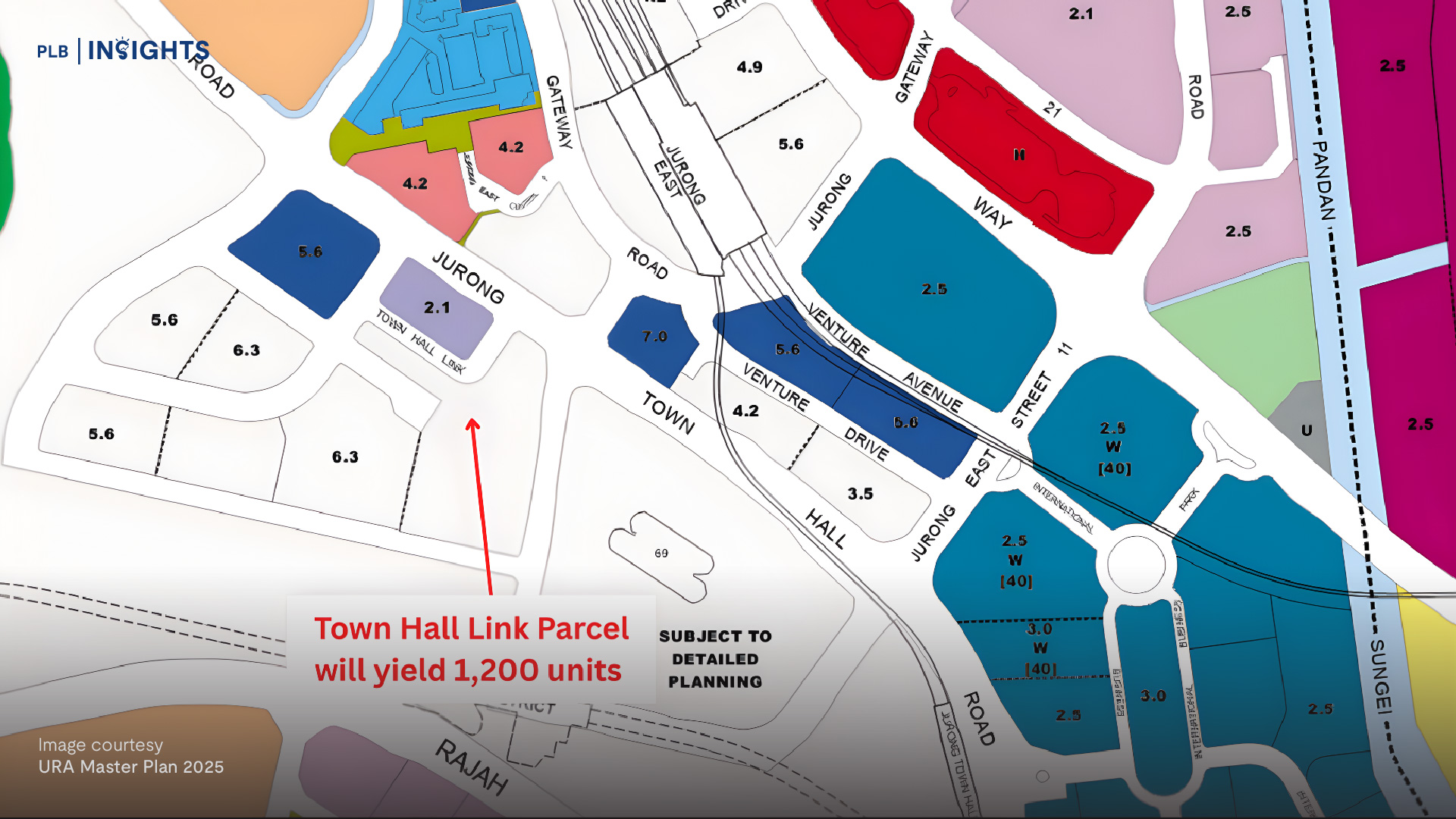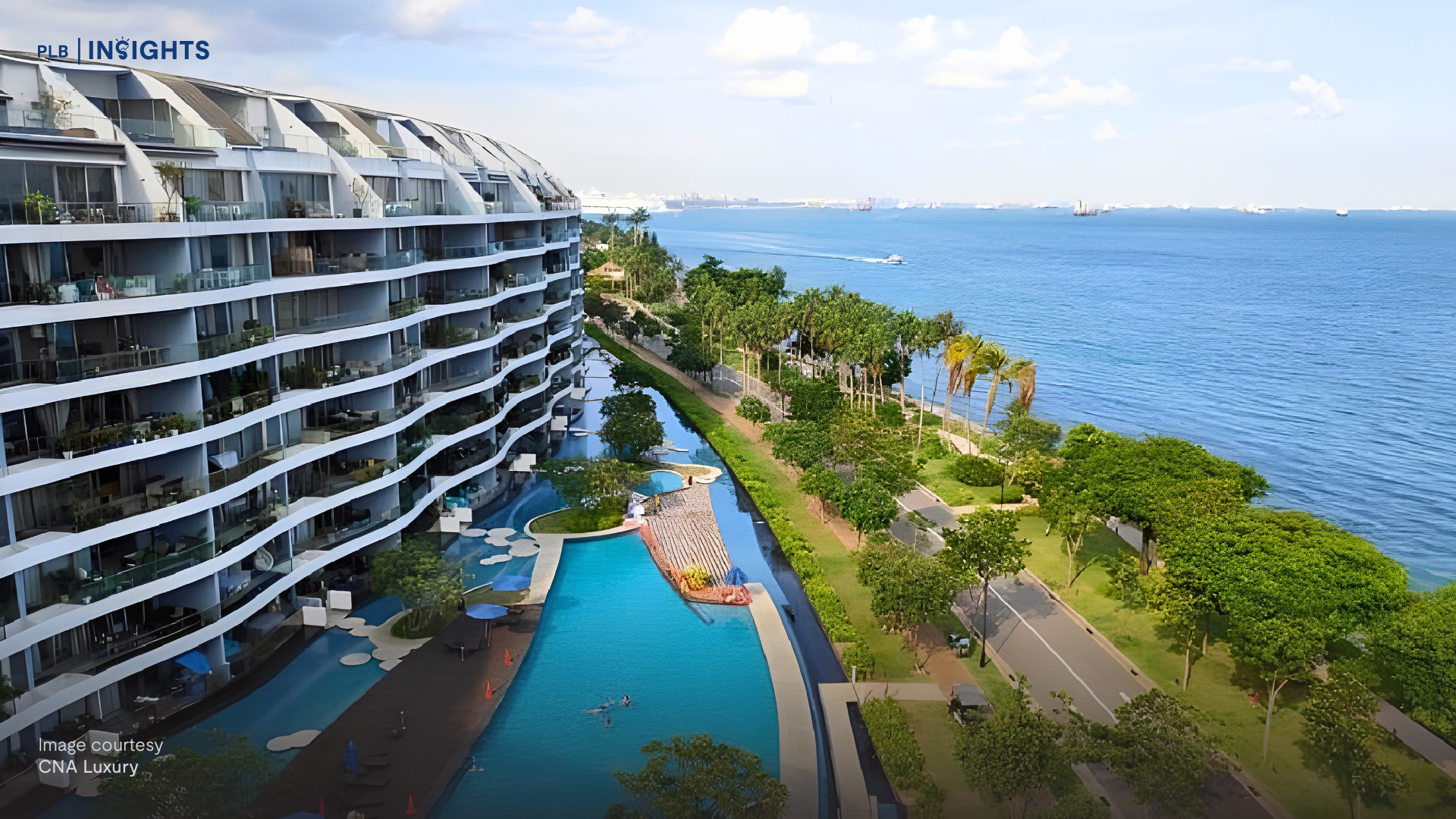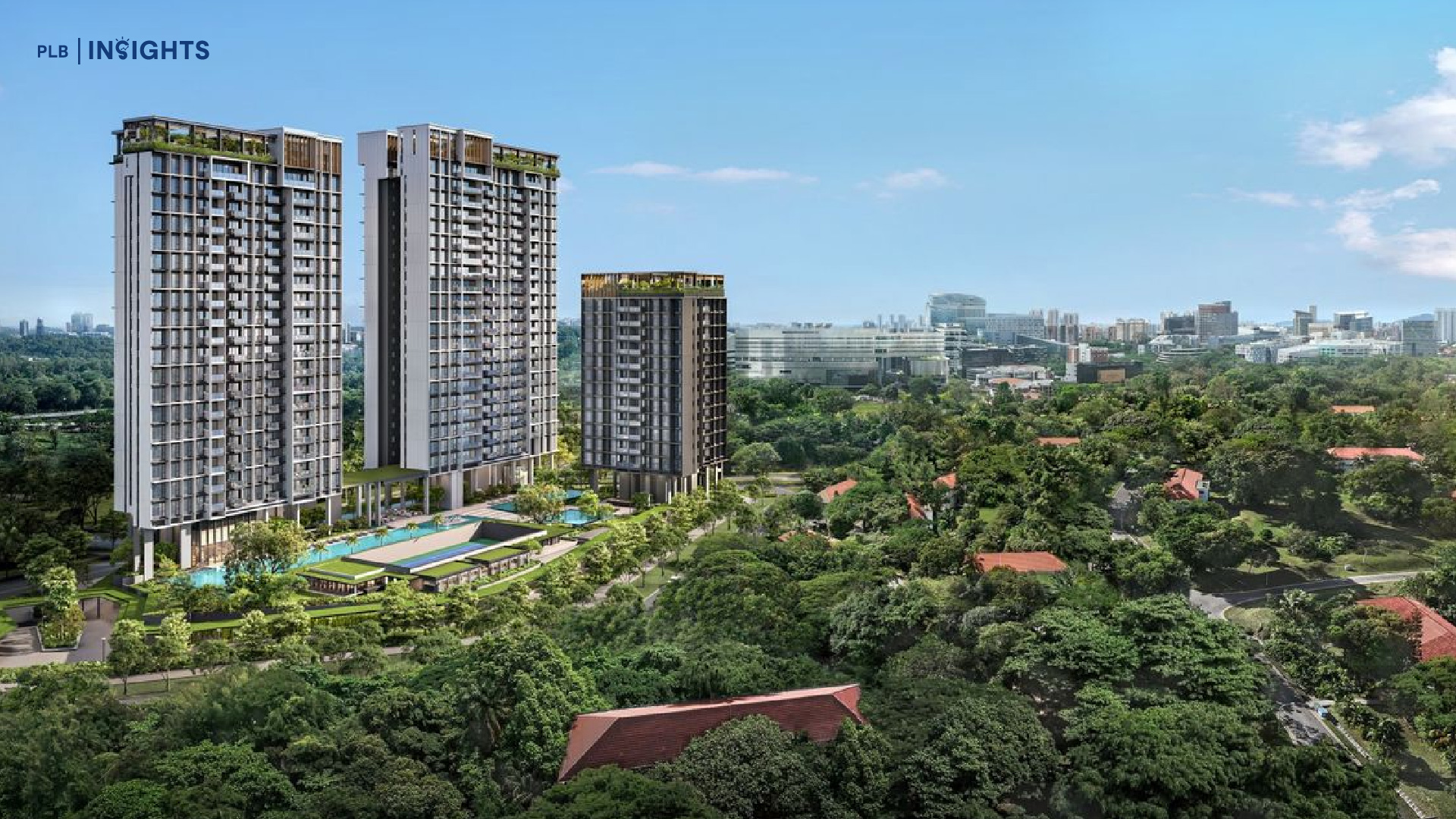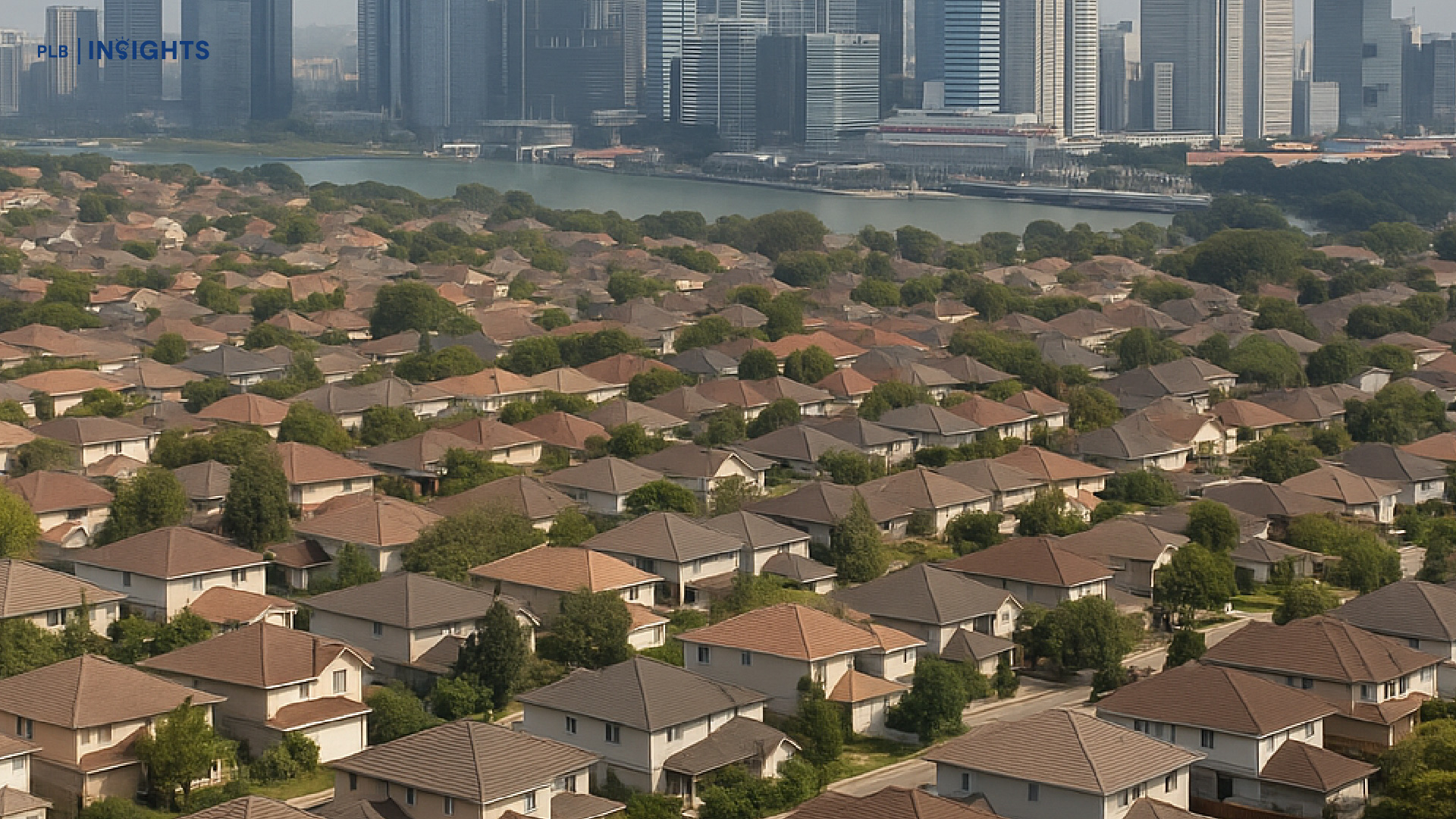
The property market in Singapore can be used as a barometer of the country’s overall economic health. At its core lies the Government Land Sales (GLS) programme, a critical instrument in ensuring a steady supply of land for various developments, including residential, commercial, and mixed-use projects. This mechanism has traditionally supported Singapore’s urban transformation, but recent outcomes may suggest the need for a closer examination of its dynamics.
A notable trend is the growing hesitancy among developers to participate actively in GLS tenders, with several high-profile sites left unsold or bids rejected for being “too low.” This raises important questions about whether Singapore’s land pricing strategy remains sustainable or requires greater flexibility to balance the competing needs of fiscal prudence, market stability, and urban planning.
Developers’ Reluctance: A Reflection of Market Sentiment
In recent years, GLS tenders have seen mixed outcomes, with some sites garnering robust participation and others failing to attract sufficient interest. High-profile cases like the Marina Gardens Crescent white site and the mega Jurong Lake District (JLD) site underscore this divergence. The Marina Gardens Crescent site, with its prime location in Marina South, attracted only one bid of nearly $770.5 million, which was ultimately rejected. Similarly, the JLD site, crucial to the vision of establishing Jurong as a second central business district (CBD), saw a bid of $640 PSF PPR that fell short of the government’s expectations.
This reluctance can be attributed to several factors. Developers face escalating development costs, from construction materials to labour, compounded by rising interest rates. In this climate, aggressive land bids present significant risks to their cash flow and long-term business sustainability. Additionally, the uncertainty in global economic conditions further deters developers from overcommitting to land acquisitions, particularly when the profitability of new projects remains uncertain.
Moreover, the government’s push for specific typologies, such as long-stay serviced apartments, adds complexity to developers’ decision-making. While these units aim to address the tight rental market and cater to long-term tenants, they require developers to adopt a different operational model, one that might not align with their traditional business strategies.

The Government’s Role: Balancing Competing Priorities
The government’s position as a regulator and the primary supplier of state land places it in a challenging role. On one hand, rejecting low bids aligns with the principle of maximising returns on state assets. Proceeds from GLS contribute to Singapore’s reserves, which are vital for long-term national stability. On the other hand, the failure to sell GLS sites could create unintended bottlenecks in land supply, potentially leading to price spikes and further cooling measures in the future.
It is also worth noting that the tendering process itself is designed to ensure transparency and market-driven outcomes. Developers submit closed bids, and sites are awarded based on price or a combination of price and concept proposals. By rejecting bids deemed insufficient, the government sends a clear message that undervaluing state land is unacceptable. However, this approach risks alienating developers, especially if they perceive the thresholds as too rigid or unrealistic given current market conditions.
The Case for Greater Flexibility in Bid Evaluations
Flexibility in evaluating bids could help address some of these challenges. Accepting bids that are marginally below expectations, provided they are not excessively low, could encourage developers to remain active participants in GLS exercises. This would help ensure a steady pipeline of new developments, particularly in segments where demand remains strong.
For instance, the Marina Gardens Crescent site could have been awarded to the sole bidder under terms that reflected both market realities and the government’s fiscal objectives. Similarly, the JLD site, critical to the development of Singapore’s second CBD, might have benefited from more flexible bid acceptance criteria to avoid delays in realising its full potential.
Flexibility need not compromise transparency or fairness. Establishing clearer guidelines on acceptable bid thresholds, while considering factors like market sentiment and economic conditions, could provide a balanced approach. This would also signal to developers that the government remains committed to fostering a collaborative, sustainable property market.
Implications of Unsold GLS Sites
The repercussions of unsold GLS sites extend beyond short-term market dynamics. A shortage of land supply in the development pipeline could exacerbate housing affordability issues in the coming years. For instance, if sites with residential components remain unsold, the resulting supply gap might drive up home prices, further straining affordability for Singaporeans. This could also force the government to introduce harsher cooling measures to stabilise the market, creating a less predictable environment for developers and buyers alike.
On the commercial front, delays in awarding GLS sites could hinder the growth of key economic districts. The JLD site is a prime example, as its development is integral to the government’s decentralisation strategy and the vision of creating vibrant, self-sufficient hubs outside the city centre. A prolonged delay in its development could slow the realisation of these objectives, affecting Singapore’s broader economic competitiveness.
Risks of Over-Correction in Bid Acceptance
While flexibility in bid evaluations offers potential benefits, it is not without risks. A more lenient approach could inadvertently encourage opportunistic bidding, where developers submit low-ball offers in hopes of acquiring sites at below-market prices. Over time, this might erode the perceived value of state land, affecting government revenues and the fiscal sustainability of reserves.
Moreover, developers who secure sites at unreasonably low prices may face financial strain if market conditions deteriorate or project costs escalate. Such acquisitions could leave developers with limited profit margins, making it challenging to absorb unforeseen increases in construction costs, financing rates, or project delays. If these pressures mount, developers could struggle to maintain financial stability and complete their projects. This could lead to unsold inventory, weakened cash flows, and reduced participation in future tenders. Such outcomes not only hurt individual developers but could undermine overall confidence in the GLS programme as a reliable mechanism for land supply.
These risks underscore the importance of careful bid evaluations that prioritise fiscal prudence and ensure a level playing field for developers. Striking a balance is crucial to maintaining trust in the system and the health of Singapore’s property market.

The Repercussions of More Lenient GLS Policies
Adopting a more lenient stance in GLS policies could have far-reaching consequences for the real estate market. On the positive side, accepting slightly lower bids might encourage developers to participate more actively in tenders, reducing the likelihood of unsold plots. This could ensure a steady pipeline of projects, stabilising property prices and addressing housing demand.
However, leniency carries significant risks, particularly in the form of oversupply. A surge in awarded sites, coupled with weaker-than-expected demand, could lead to falling property values as developers offload inventory through aggressive discounts. Homeowners may see their equity eroded, and those who purchased at peak prices risk falling into negative equity—where their property’s value drops below the mortgage amount. Such scenarios are especially concerning for individuals relying on property wealth for retirement or financial planning.
Declining property values could also have broader economic repercussions. In Singapore, where property ownership constitutes a significant portion of household wealth, falling home prices might dampen consumer confidence and curtail spending. This, in turn, could ripple through other sectors of the economy, exacerbating financial uncertainties. Similarly, lower rental yields driven by increased competition among landlords could deter future investments, weakening the rental market and compounding challenges for the real estate sector.
Specific market segments, such as long-stay serviced apartments, are also at risk. If corporate housing demand weakens during economic downturns, these units could face a glut, further straining developers’ cash flows and impacting their willingness to bid for future sites.
While greater flexibility in GLS policies might address short-term supply issues, it must be paired with robust demand forecasting, clear bid thresholds, and targeted interventions to avoid destabilising the market. Striking this balance is essential for maintaining long-term stability and preserving trust in Singapore’s property ecosystem.
In Conclusion
The GLS programme remains a cornerstone of Singapore’s urban development strategy, balancing the needs of developers, homebuyers, and the broader economy. As market conditions evolve, so too must the policies governing land sales. While rejecting low bids upholds fiscal discipline, it also carries risks that must be carefully managed to avoid supply gaps and market imbalances.
Flexibility in bid evaluations, coupled with clear and transparent guidelines, could offer a middle ground that ensures adequate land supply without compromising the integrity of the tender process. At the same time, the government must remain vigilant against the risks of oversupply and opportunistic bidding, striking a balance that supports long-term stability and sustainability in the real estate market.
Ultimately, the success of the GLS programme hinges on its ability to adapt to changing market dynamics while staying true to its role as a steward of Singapore’s urban landscape. By fostering collaboration with developers and aligning policies with broader economic objectives, the government can ensure that the GLS programme continues to drive growth, affordability, and resilience in Singapore’s property market.
Navigating the complexities of Singapore’s real estate market? Let our expert consultants guide you. Whether you’re planning your next investment or searching for the perfect home, we’re here to help you make informed decisions. Contact us today to get started!
Disclaimer: Information provided on this website is general in nature and does not constitute financial advice or any buy or sell recommendations.
PropertyLimBrothers will endeavour to update the website as needed. However, information may change without notice and we do not guarantee the accuracy of information on the website, including information provided by third parties, at any particular time. Whilst every effort has been made to ensure that the information provided is accurate, individuals must not rely on this information to make a financial or investment decision. Before making any decision, we recommend you consult a financial planner or your bank to take into account your particular financial situation and individual needs. PropertyLimBrothers does not give any warranty as to the accuracy, reliability or completeness of information which is contained in this website. Except insofar as any liability under statute cannot be excluded, PropertyLimBrothers, its employees do not accept any liability for any error or omission on this web site or for any resulting loss or damage suffered by the recipient or any other person.







